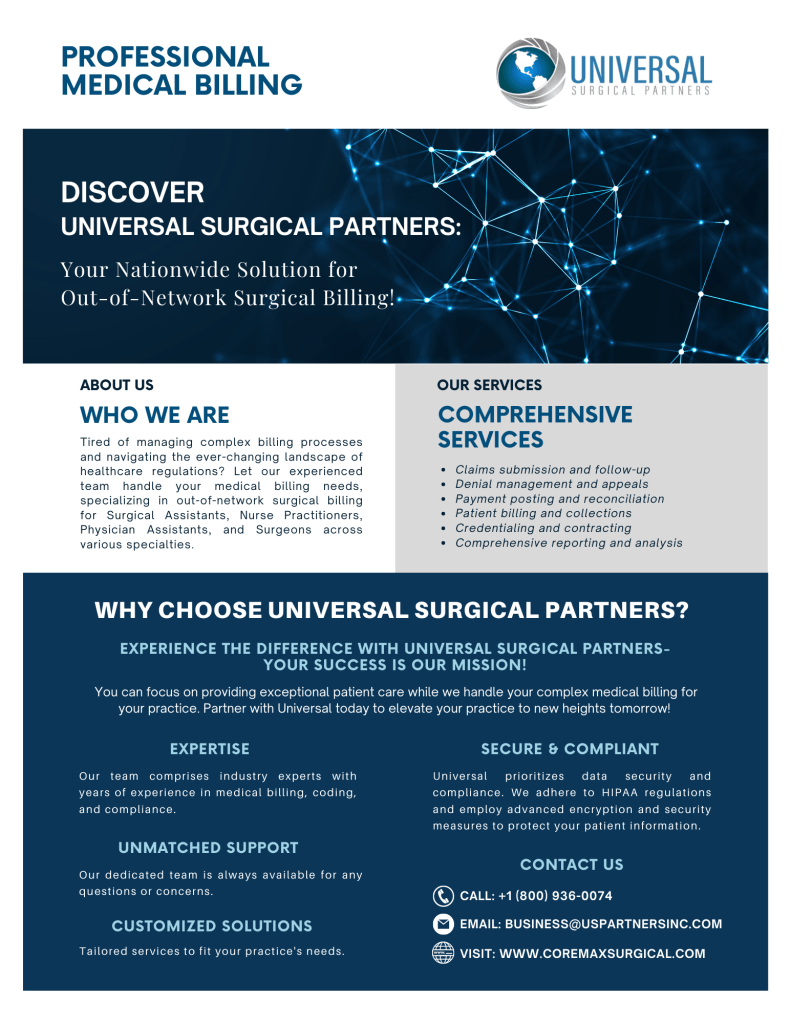LAWS GOVERNING SURGICAL ASSISTANT PRACTICES
Detailed Explanation of S.B. 1264
LEARN THE LATEST DEVELOPMENTS IN U.S. ABOUT SURGICAL OPPORTUNITIES FOR FOREIGN MEDICAL GRADUATES, PHYSICIAN ASSISTANTS AND SURGICAL ASSISTANTS.
UNIVERSAL SURGICAL TEAM KEEPS UP WITH THE NEWS RELATED TO SURGICAL & PHYSICIAN ASSISTANTS TO PROVIDE A COMPLETE UNDERSTANDING TO THE PROBLEMS WITH SOLUTIONS. WE ALSO PROVIDE COMPLETE GUIDANCE TO OVERCOME THE RELAVANT HURDLES THAT SURGICAL PROVIDERS FACE IN ADDITION TO THE CURRENT CHALLANGES INDUSTRY IS FACING TODAY.
Detailed Explanation of S.B. 1264
It has long been a established fact that surgical assistants are under a tremendous financial pressure. Many has lost their jobs because of poor reimbursements across board for all insurance carriers and specialties. Many established groups vanished one after the other. Many providers took the route scrubbing as technicians which hospitals took advantage of. Contrary to the above-mentioned facts, it is still possible to make a decent living by staying united under one umbrella and using a honest and dedicated billing company. While industry struggles with the issue of Surgical Assistant billing,
one such example is Universal Surgical Assistants with headquarters based in Houston, Texas. It has been established that there are still insurance companies paying handsome which obviously cover the loses. If one follows the explanation of laws closely like here below given in the document, it is very much possible to survive comfortably. Of course, it is not simply possible to work in the operating room all day long and comply with all the administrative requirements of the industry. In such circumstances a group setting works the best to manage the surgical assistant practices.
The Surprise Billing Act has the potential to devastate the entire Surgical & Physician industry in U.S.
The act generally limits a patient’s out-of-pocket costs for these services to what they would have had the services been provided in-network. There is an exception for out-of-network providers delivering services at in-Network facilities. Under the No Surprises Act, plans and providers have 30 days to negotiate payment amounts. The act defers to states to set payment standards or dispute resolution processes for fully insured plans. In determining the payment amount, the IDR (Independent Dispute Resolution) entity will consider the median in-network rate.
In this process, each party submits a payment amount offer and supporting evidence, and the certified IDR entities chooses one of the amounts. The losing party must also pay the arbitration costs.
An IDR entity will also consider information submitted by the parties, the provider’s training, education, experience, and quality. The act provides for external reviews for any adverse determinations made under the surprise medical billing provisions of ERISA and the PHSA. Other changes in the No Surprises Act include: Directing the secretaries of the U.S. Department of Labor, U.S. Department. of Health and Human Services to issue regulations by January 1, 2022, on the provider nondiscrimination rules under the Affordable Care Act.
Establishing rules related to continuity of care to protect patients when provider relationships with a network are terminated. The No Surprise Act of 2018 will take effect in 2022.
